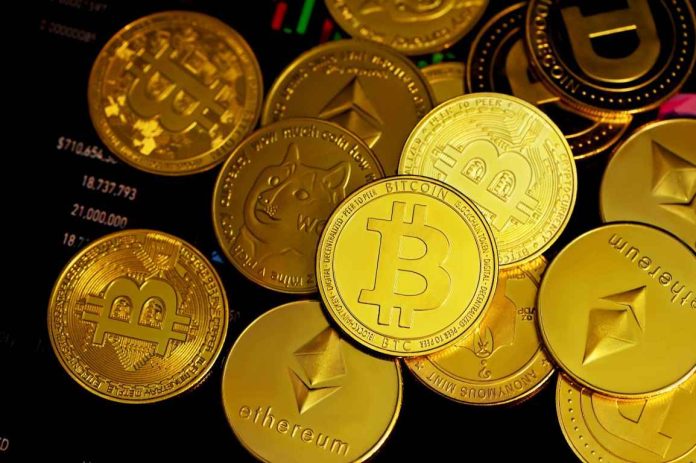The International Monetary Fund (IMF) would favour regulating and differentiating cryptocurrencies rather than imposing an outright ban, although the nuclear option will remain on the table for now.
According to the IMF Managing Director Kristalina Georgieva, at the G20 meeting in India, the agency would choose to regulate crypto rather than ban it outright.
On February 23 2023, the International Monetary Fund (IMF) published a crypto assets paper with policy recommendations. The IMF Managing Director Kristalina Georgieva interpreted how the United Nations financial agency views virtual assets and what it would prefer to see in terms of regulation on the side-lines of the G20 finance minister meetings in Bengaluru, India. The IMF Director said, “We are very much in favour of regulating the world of digital money,” which is a top priority.”
In an interview with experts at Bitcoin Profit published on February 27 2023, Georgieva replied to a question on her recent comments about a potential complete ban on crypto assets, stating that there was still much uncertainty around the classification of digital money.
Georgieva said, “Our first objective is to differentiate between central bank digital currencies backed by the state and publically issued crypto assets and stablecoins.”
The Managing Director added, “Fully-backed stablecoins create a “reasonably good space for the economy,” but non-backed crypto assets are speculative, high risk and not money.”
Table of Contents
Key recommendations
The IMF said an outright ban on crypto assets should differ from the first-best option and mentioned recommendations that fall into three themes: international coordination, legal and regulatory and macroeconomic.
On the macroeconomic front, stated that the IMF’s key role is to advance global financial stability; it wants to establish that individual economies remain stable. For some countries with less vigorous local currencies, there’s a real risk that nationals choose to hold assets in blockchain-based stablecoins ruled in dollars rather than the local currency.
Hence, there’s a potential monetary sovereignty risk that the IMF suggests combatting by preventing large fiscal deficits and making a cryptocurrency legal tender like El Salvador.
Some countries restrict money moving out of the country, and crypto can undermine these. The IMF’s second recommendation is to safeguard against such risk by ensuring any capital movement restrictions apply to crypto-assets, with suggestions that such states should keep a higher level of external reserves to address volatility in cross-border movements. IMF also suggests adopting a transparent tax policy for cryptocurrencies.
Advantages of cryptocurrencies
Cryptocurrencies provide low-cost cross-border payments and the associated risks regarding costs. Crypto assets can attract the attention of multiple domestic regulators for commodities, securities, payments, banks and others with fundamentally different frameworks and objectives. Digital assets prioritise customer protection, safety and soundness or financial integrity. While miners, validators and protocol developers are not easily covered by traditional financial regulation.
Crypto assets offer protection from inflation which has caused many currencies to urge their value to decline with time. When demand increases, the value will increase, which may maintain the market and prevent inflation in the long run.
Cryptocurrencies are mainly decentralised and keep the currency monopoly free and in restraint so that no entity can determine the coin’s flow and worth. Whether domestic or international, transactions in cryptocurrencies are lightning fast as verification requires little time to process as there are only a few barriers to cross.
Crypto assets have been around for over a decade, but it is only now that efforts to manage them have moved to the top of the policy agenda. This is because crypto assets have moved from niche products in search of a reason to have a more mainstream vicinity as speculative investments, potential payments and hedges against weak currencies in the past few years.
The spectacular, if volatile, growths in the market capitalisation of crypto assets and their creep into the managed financial system have led to increased efforts to control them. So has the development of crypto’s evolving innovations and many different products and offerings that have facilitated issuance and transactions.
According to Georgieva, citing a recommending global regulation standards paper, the crypto asset cannot be legal tender because they are not backed.
However, she said that the choice to ban cryptocurrencies “should not be taken off the table” if they begin to pose a greater risk to financial stability.
Georgieva said, “Nevertheless, good regulations, predictability and consumer protection would be a better option, and banning would not need to be considered.”
When Georgieva was asked what could cause the decision to ban crypto, she replied that failure to protect consumers from the rapidly developing world of cryptocurrencies would be the primary catalyst.
The International Monetary Fund (IMF), the Bank for International Settlements and the Financial Stability Board are cooperatively preparing to release regulatory framework guidelines in the year’s second half.




